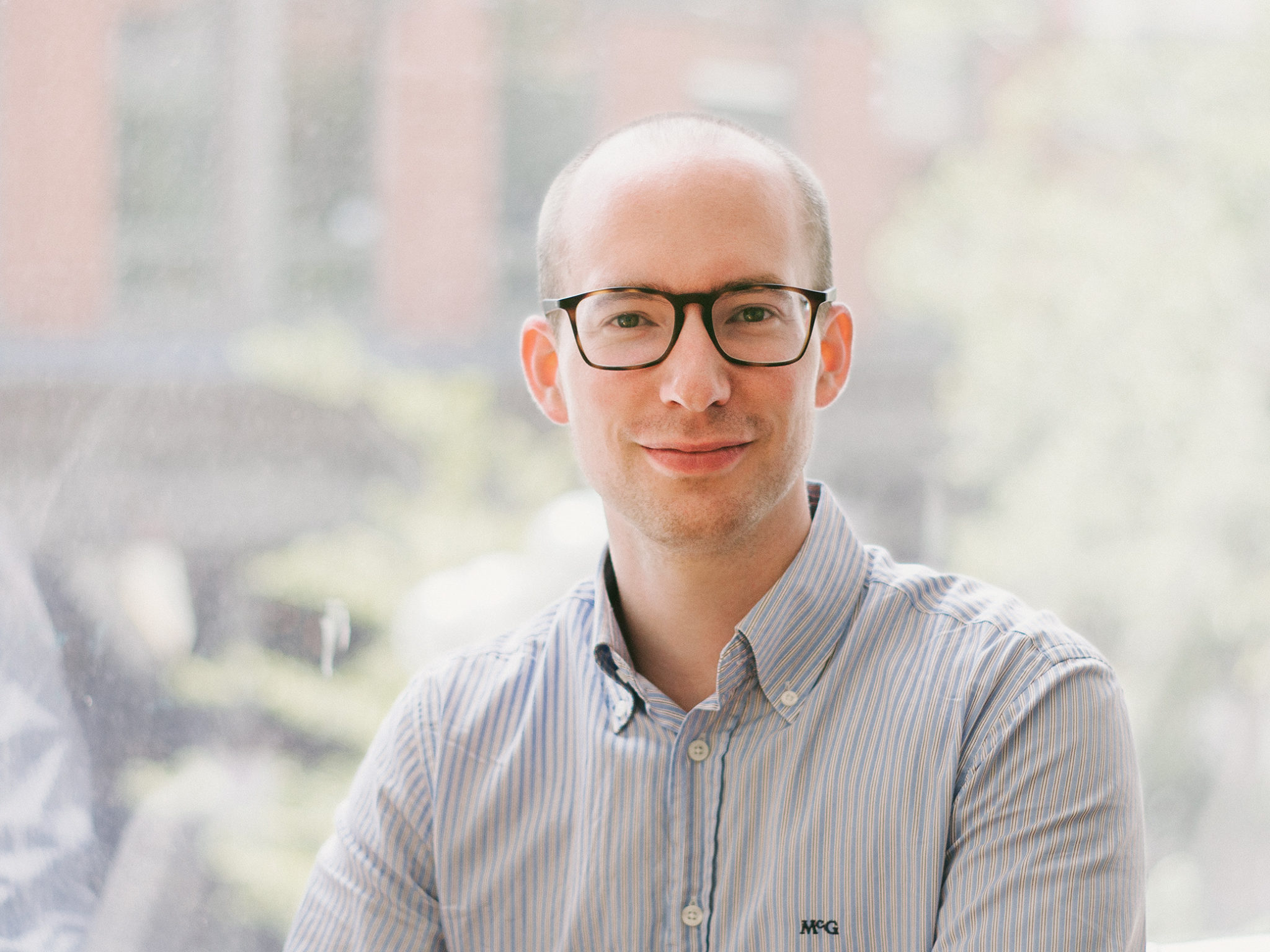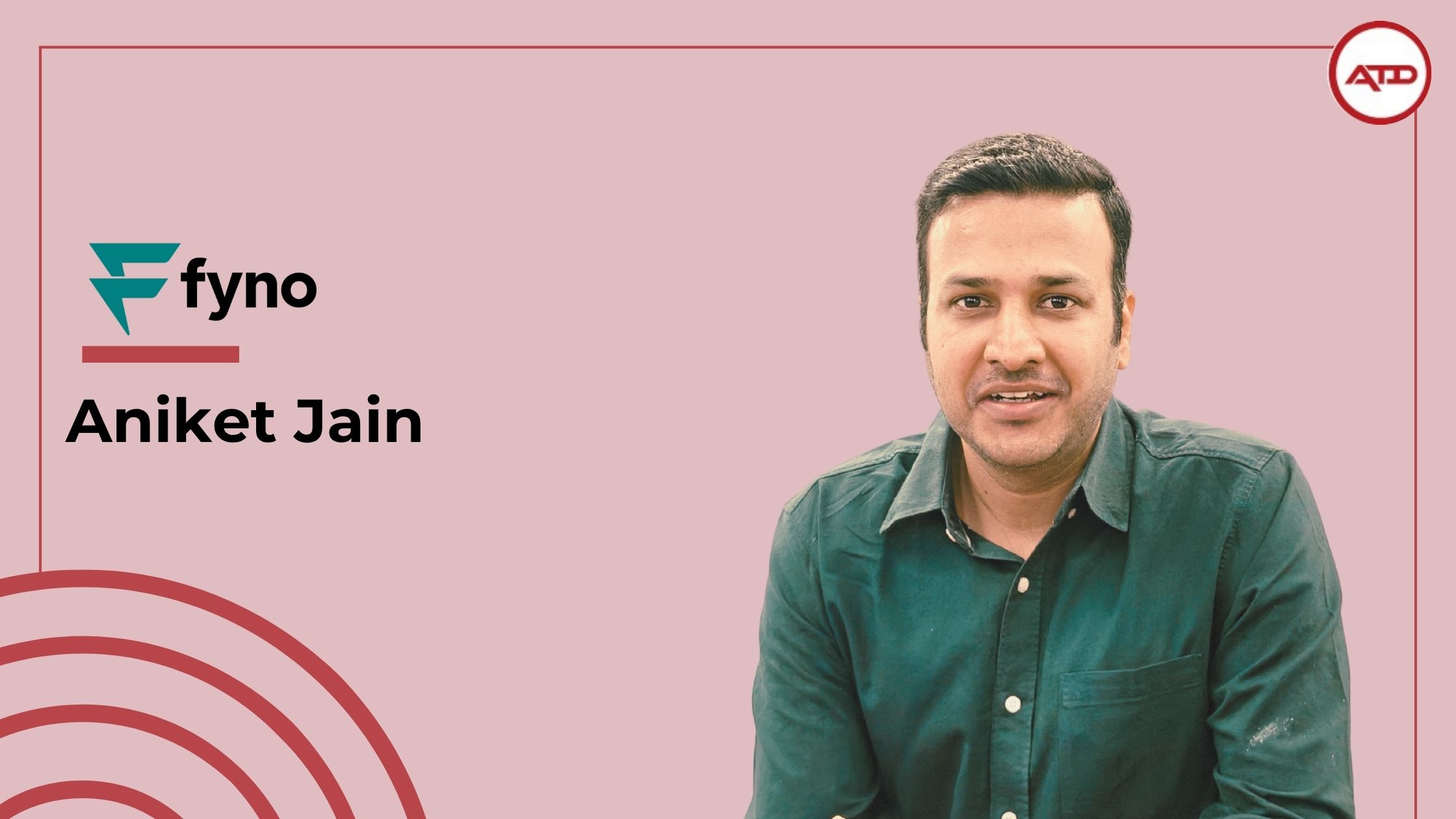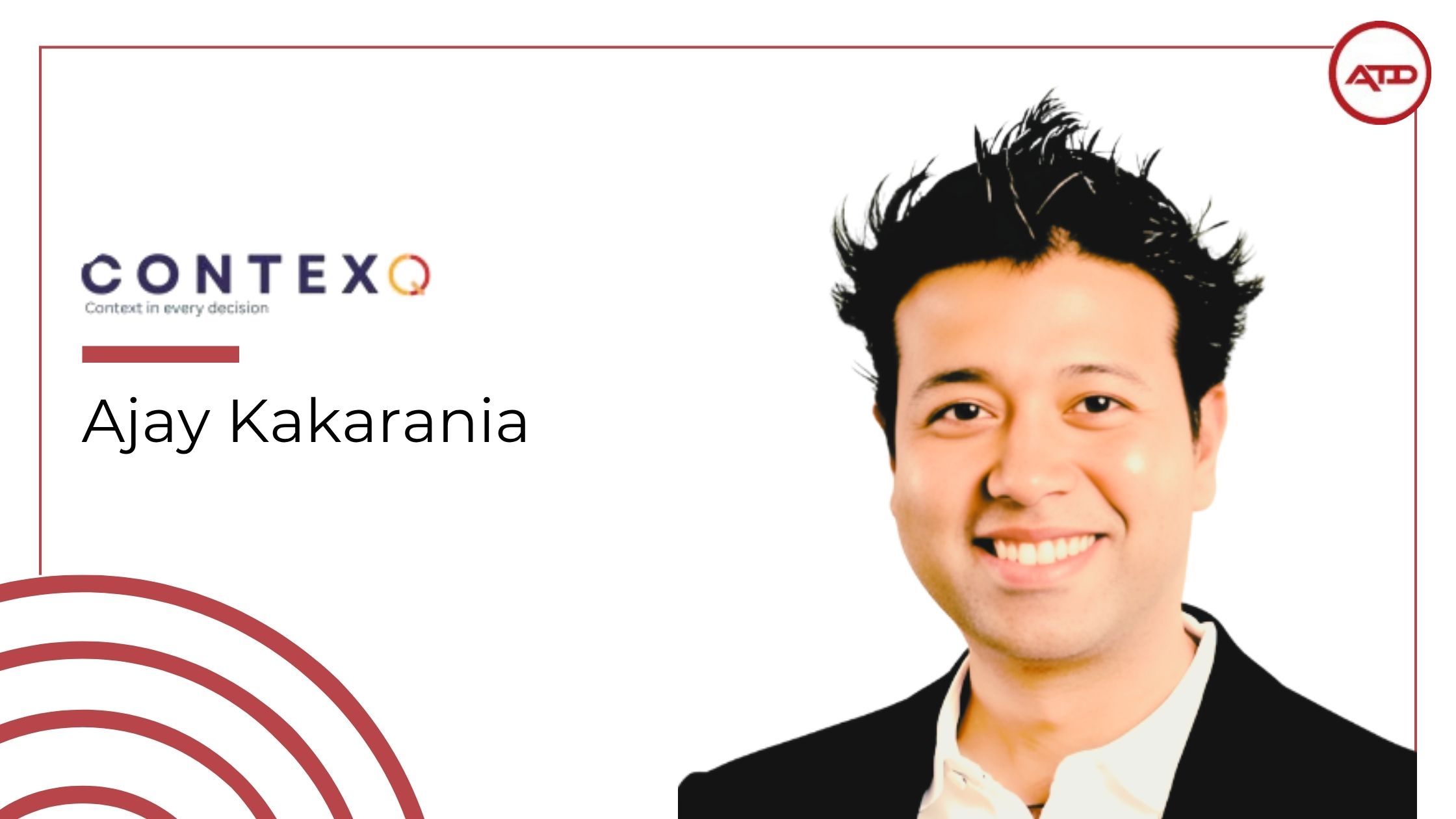AsiaTechDaily – Asia's Leading Tech and Startup Media Platform

How Thierry Schellenbach, Co-Founder And CEO Of Stream Raised $20.3M To Build Enterprise Grade Feed And Chat APIs?
Thierry Schellenbach is the co-founder and CEO of Stream. Stream powers activity feeds and chat technology for more than a billion end-users.
Prior to Stream, Schellenbach founded Fashiolista, an early social network similar to Pinterest. It grew to millions of users and eventually sold to private equity for an undisclosed eight-figure amount.
Schellenbach graduated cum laude with a Bachelor of Science in business administration from Erasmus University Rotterdam, one of Europe’s leading universities. His passion for technology started at an early age; when he was 14, he started his first profitable site and taught himself how to program.
He’s the author of several widely used open-source software packages, including Stream Framework, Django Facebook, and a popular open-source RSS reader called Winds.
Stream is the best-in-class, enterprise-grade chat and activity feed provider that serves over a billion end-users. Stream’s feature-rich products include robust client-side SDKs for iOS, Android, React, React Native, Flutter, and support for the most commonly used server-side languages; scalable and secure APIs; and a beautiful UI kit.
Stream is the fastest, most scalable solution on the market today, enabling application product teams to increase user engagement and retention and decrease time to market.
In an exclusive interview with AsiaTechDaily, Thierry says:
It’s easy to stay motivated if you’re working on something you’re passionate about. I think that’s what unifies our team – this shared passion for pushing the bar and enabling our customers to ship activity feeds and chat at a better user experience than teams can achieve in-house. It’s pretty crazy to think that we have an impact on over a billion end users.
Of course, startups are stressful. Working out every day helps with mental health and staying motivated.
The most common failure I see is founders just not getting along. I think it’s important to work with people you’ve known for a while and can spend long hours working with.
First off, the biggest mistake startups make in terms of marketing is not doing it – they put their focus elsewhere. Alternatively, a lot of early-stage startups try to adopt the playbook of bigger companies, as they try to sponsor big events, redo their websites, and/or pour too much money into efforts that won’t convert for an organization that isn’t well-known yet, resulting in low ROIs. Running paid campaigns or tactics that actually translate to revenue, the brand must be built beforehand.
Read on to know more about Thierry Schellenbach and his journey.
https://www.youtube.com/watch?v=MtGrHZQ_HCE&%3Bfeature=youtu.be
Please tell me about your personal background and What motivated you to get started with your company?
Thierry Schellenbach: Soon after graduating from Erasmus University Rotterdam, I co-founded Fashiolista, a social network similar to Pinterest. Ultimately, the company was acquired by a private equity firm, but while working on it, one of the problems that we struggled with most was scaling the activity feed as the social network grew to millions of users. Even companies such as Twitter and Facebook struggled with this issue. We were trying to build a social network, and instead of focusing on the community and growing the user base, we were solving all of these technical issues, such as how to keep the activity feed up and running when adding a lot of members.
That’s what inspired me and my co-founder, Tommaso Barbugli, to start Stream. It was really just about solving a personal pain point that we knew other companies were struggling with too.
While we initially started Stream in Amsterdam, we participated in an American seed accelerator program in New York City, Techstars, in 2015. Following that, we moved our headquarters to Boulder, Colo., and today, we have offices in Amsterdam and Boulder.
What is your current main product, and can you share any previous product pivot story to the current product?
Thierry Schellenbach: Our most popular product is the Stream Chat. The Stream started with an API to build scalable activity feeds, but in 2019, we launched our chat API and SDKs, which provide easy-to-integrate chat solutions for any app. Stream’s chat innovations tackle difficult technical challenges at scale and create reusable components, allowing organizations to integrate chat capabilities into their apps faster, more securely, and with a better overall user experience.
We offer both activities feeds and chat, but chat continues to grow exponentially, especially as more businesses move their operations online during COVID-19. There is a lot of demand for live chat from organizations in healthcare, education, and live events especially. In the past six months, revenue from our chat API has increased by 300%.
How much money have you raised in total so far? When was the recent funding round?
Thierry Schellenbach: Stream’s total funding is $20.25 million. We recently completed our Series A financing, closing at $15 million.
What were the internal decision processes in determining when to begin fundraising, and what were the logistics for this? And how many investors have you met so far, and how did you meet these investors, and which channels worked best for you?
Thierry Schellenbach: Initially, with COVID-19, we experienced a downturn in business, but soon after, as companies expanded their online operations, many turned to Stream for help in implementing live chat. Our customer base began growing rapidly, and we decided it would be a good time to pursue our Series A funding to support the growth.
We met with several investors, and we decided to work with GGV Capital. They have worked with similar companies in the past, such as Agora, Slack, and Zendesk, so we felt comfortable that they understood our products and mission. Additionally, many of their portfolio companies have a need for chat, which will make it easier for us to hit our metrics for the next round.
GGV led our Series A, with participation from new investor 01 Advisors, Knight, seed round lead investor Arthur Ventures, and other backers, including Olivier Pomel, CEO of Datadog, and Tom Preston-Werner, co-founder of GitHub.
Interestingly, due to the pandemic, we had to raise funding via Zoom calls. Initially, we were a little worried if that would work out. While a few VC’s were adamant about meeting in person, it ultimately turned out really well with more interest in the round than we could fill.
Prior to our Series A, in 2015, we made the decision to participate in Techstars New York to jumpstart funding opportunities. When we got started with Stream, I wanted to do fundraising in the US because fundraising in Europe was always very difficult. Techstars was very effective for fundraising; two days after our initial demo day, I got an email from Dharmesh Shah (co-founder and CTO of HubSpot). He shared his own struggles with activity feeds, and he wanted to invest $100,000 in Stream. Moving our headquarters to the US was a good decision in terms of fundraising.
What are the biggest challenges and obstacles that you have faced in the process of fundraising? If you had to start over, what would you do differently?
Thierry Schellenbach: We proactively avoided it by making the decision to participate in Techstars NYC and pursue funding in the US, but I think that many European startups face challenges when it comes to fundraising in Europe. While it’s been improving in recent years, fundraising in Europe has always been much slower and more difficult than in the US. It can be difficult to build a European startup that competes with American companies because you’re at a disadvantage in terms of fundraising. If we hadn’t done Techstars to build a US network and opened a Boulder office, we definitely would have faced that challenge.
What are your milestones for the next round? And what are your goals for the future?
Thierry Schellenbach: We’re focused on continuing to grow our customer base, global team, and products throughout the next 12 months. The goal is to eventually IPO the business, but for now, we’re really enjoying working together and aligning with a shared vision.
How have you attracted users, and with what strategy have you grown your company from the start to now?
Thierry Schellenbach: Creating valuable content has played a huge role in growing our company. We focus on writing resources and posts that help SEO and sales while also providing relevant information for our audience at large about different industries, technology, and trends. Further, case studies showcase the experience our customers have integrating and working with us, and we have found that letting our current users highlight the benefits of Stream is one of the most compelling ways to market our products and services. Additionally, we support conferences and events in our sphere of business through sponsorship, and these partnerships extend and expand our brand awareness and exposure.
Which has been the best marketing software tool for the growth of your startup, and why?
Thierry Schellenbach: Hubspot has been incredibly helpful with everything from lead-nurturing campaigns to landing pages. We have been able to create valuable resources for our audience (white papers, ebooks, etc.), gate them with landing pages, capture their information, and follow-up through email sequences through this tool. Hubspot houses all of our contacts from cold leads to current customers, organizing them so that different teams have the ability to utilize their information in a variety of ways.
What do most startups get wrong about marketing in general?
Thierry Schellenbach: First off, the biggest mistake startups make in terms of marketing is not doing it – they put their focus elsewhere. Alternatively, a lot of early-stage startups try to adopt the playbook of bigger companies, as they try to sponsor big events, redo their websites, and/or pour too much money into efforts that won’t convert for an organization that isn’t well-known yet, resulting in low ROIs. Running paid campaigns or tactics that actually translate to revenue, the brand must be built beforehand.
How do you plan to expand globally?
Thierry Schellenbach: We’re currently very focused on growing our global team across engineering, sales, and marketing. We’re proud to have a very diverse, international team; while we have two offices in Boulder and Amsterdam, several employees work remotely around the globe, and our team represents 15 different nationalities.
The global focus extends to our customer base as well. We power experiences for more than a billion end-users, and we work with companies around the world.
What are the most common mistakes companies make with global expansion?
Thierry Schellenbach: One of the biggest mistakes that companies make with the global expansion is not understanding that other cultures, along with their buying processes, are not the same. For example, in Indonesia, if a company can’t prove that the service that it’s using is outside of Indonesia, they incur a 20% government tax on the fees they pay. As a US company, you need to supply a Certificate of Residency along with an Indonesian form. Another common mistake is not providing your service (if you’re SaaS) geographically close to your customers. You need to be sure to provide stacks in regions around the world to reduce latency and provide a first-class experience.
How do you handle this COVID-19 outbreak situation for your company’s survival in the future?
Thierry Schellenbach: We were lucky in that COVID-19 accelerated our growth. While the pandemic certainly expedited widespread adoption of telemedicine, remote learning, and online conferences and events, many of these things should have been digital before. Even after restrictions ease up and more in-person interaction resumes, we anticipate that many of these use-cases won’t disappear, and we’ll continue to see more demand for live chat.
On another note, it’s critical that we consider the health and safety of our employees. We’re allowing all team members to work remotely, and for employees in the office – when the offices are open, depending on regional guidelines – we’ve implemented various health and safety procedures to ensure proper social distancing and sanitation.
What are the most common mistakes founders make when they start a company?
Thierry Schellenbach: The most common failure I see is founders just not getting along. I think it’s important to work with people you’ve known for a while and can spend long hours working with.
What’s the best advice you’ve ever received? And What advice do you have for someone who is interested in doing similar things like yours or in a similar direction?
Thierry Schellenbach: I think it was Paul Graham who wrote about the importance of design, marketing, and engineering. He recommended mastering two out of three. I read that advice very early in my career and focused on mastering both marketing and engineering. It’s important to have a broad skill set so you can set an effective strategy for the company.
What are the top-three books or movies (TV series) that changed your life and why?
Thierry Schellenbach:
Venture Deals by Brad Feld, Paul Graham’s essays , and Traction by Gino Wickman.
How do you keep yourself motivated every day?
Thierry Schellenbach: It’s easy to stay motivated if you’re working on something you’re passionate about. I think that’s what unifies our team – this shared passion for pushing the bar and enabling our customers to ship activity feeds and chat at a better user experience than teams can achieve in-house. It’s pretty crazy to think that we have an impact on over a billion end users.
Of course, startups are stressful. Working out every day helps with mental health and staying motivated.
What are the top three life lessons that you want your (future) sons and daughters to know?
Thierry Schellenbach:
- I want them to have the confidence to go out there and attempt to do hard things. Things that other people won’t expect to work
- Discipline and hard work are extremely underrated skills
- Be honest and transparent about how things are going. Don’t hide problems and work on improving
What would you like to be remembered for?
Thierry Schellenbach: It’s exciting to see how Stream has an impact on billions of users. That’s not a bad thing to be remembered for. As a founder, every successful startup gives you the track record and financial means to chase after even bigger and crazier ideas, so let’s see what the future brings.
You can follow Thierry Schellenbach here.
Are you looking to secure investment for your startup or a keen startup enthusiast, keep an eye on our interview section.
Follow Asia Tech Daily to know about the innovative startups and how they are revolutionizing the ecosystem.



